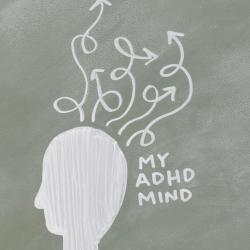The Connection Between Emotional Resilience and Mental Health
The dialogue surrounding mental health has expanded exponentially, reflecting a society increasingly aware of its importance. Among the myriad factors influencing mental health, emotional resilience stands out as a vital component. Emotional resilience, often characterized as the ability to bounce back from stress, adversity, failure, and even trauma, plays a significant role in maintaining and improving mental health. This article explores the connection between emotional resilience and mental health, examining how resilience can be cultivated to enhance psychological well-being.
Understanding Emotional Resilience
Emotional resilience is a multifaceted concept involving a range of skills, behaviors, and attitudes. It encompasses emotional awareness, the ability to regulate one’s emotions, optimism, adaptability, and a strong sense of purpose. Resilient individuals are not immune to stress or negative emotions; rather, they are capable of handling these emotions in a constructive manner.
According to psychologists, resilience involves complex interactions between an individual's environment, biology, and personal experiences. It is not a fixed trait but a developmental process that can be nurtured and strengthened over time. The ability to learn from experiences, maintain a positive outlook despite adversity, and seek support when necessary are hallmarks of emotional resilience.
The Role of Emotional Resilience in Mental Health
Emotional resilience significantly impacts mental health outcomes. Numerous studies have underscored the role of resilience as a protective factor against psychological disorders such as depression and anxiety. Here are some ways in which resilience influences mental health:
-
Coping with Stress: Resilient individuals employ effective coping strategies to manage stress, reducing the negative impact of stress on their mental health. By viewing challenges as opportunities for growth, resilient people experience less emotional distress in response to stressors.
-
Emotional Regulation: Being emotionally resilient includes the ability to regulate intense emotions. This regulation helps prevent emotional burnout and mitigates the risk of mood disorders.
-
Optimism and Positive Thinking: Resilience is closely tied to maintaining an optimistic outlook. A positive mindset can buffer against the effects of stress and contribute to overall mental well-being.
-
Building Supportive Relationships: Resilience often involves building and relying on a supportive social network. These relationships provide emotional support, practical help, and a sense of belonging, all of which are crucial for good mental health.
-
Adaptability and Problem-Solving: Adaptability allows resilient individuals to effectively navigate life’s challenges and find solutions, fostering a sense of competence and control that supports mental health.
Cultivating Emotional Resilience
The good news is that emotional resilience can be cultivated through intentional practice and lifestyle changes. Here are a few strategies to enhance resilience:
-
Develop Self-Awareness: Recognize and understand your emotions, triggers, and responses. This awareness is the first step in managing emotions effectively.
-
Nurture Relationships: Building strong, supportive relationships can provide a safety net during times of stress. Engage in community activities, seek support when needed, and aim to maintain healthy friendships and family connections.
-
Practice Mindfulness and Relaxation: Mindfulness practices such as meditation, yoga, or deep breathing exercises can enhance emotional regulation and reduce stress.
-
Embrace Change: Developing a mindset that embraces change and views challenges as opportunities for growth can help build resilience.
-
Set Realistic Goals: Break goals into manageable steps and celebrate small achievements. This approach can build confidence and perseverance.
-
Seek Professional Help When Needed: Therapy or counseling can provide tools and strategies to build resilience, offering a safe space to explore emotional challenges.
Conclusion
The interplay between emotional resilience and mental health is evident and profound. By fostering resilience, individuals not only enhance their ability to cope with adversity but also build a foundation for long-term mental health. As society continues to emphasize the importance of mental wellness, encouraging the development of emotional resilience must remain a priority. Empowering individuals with the skills to face life's challenges can lead to healthier, more fulfilling lives, fundamentally transforming our approach to mental health care.






















